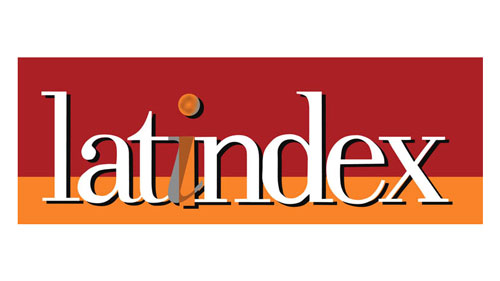Um estudo de caso sobre o Português como Língua de Herança (PLH) nas cidades de Suzuka e Sakai, Japão
DOI:
https://doi.org/10.26512/rhla.v16i2.19938Keywords:
Portuguese as a Heritage Language, Beliefs and actions, Brazil-Japan immigrationAbstract
This article is a primer on converting some chapters from the dissertation based on collective case study regarding beliefs and actions of Brazilian immigrants in Japan about ‘Portuguese as a Heritage Language’ (PLH). The research aimed at identifying the participant’s beliefs on learning the PLH and their actions concerning its maintenance, as well as analyzing the relations established among their beliefs and actions on PLH. The theoretical framework that allowed the study was the ‘Heritage Language’ (LH) and PLH studies, as well as the research on beliefs and actions. Therefore, the methodology was the qualitative research carried by interpretative approach, feasible on beliefs contextual research approach and used the following data collection instruments: observations, field notes, semi-structured interviews and mixed written questionnaire. The results showed a close relation between the beliefs and action of the participants in the learning and teaching process of PLH from their children, thereby resulting in common grounds and beam divergences of beliefs on assigning different values and objectives on the LH learning, continuity of study and, finally, the implications of mother’s monolingualism and their children’s bilingualism.
Downloads
References
ABRAHÃO, Maria. H. V. Crenças e ensino de línguas: foco no professor, no aluno e na formação de professores. Campinas: Pontes Editores, 2006.
BARCELOS, Ana. M. F. Cognição de professores e alunos: tendências recentes na pesquisa de crenças sobre o ensino e aprendizagem de línguas. In: BARCELOS, A. M. F.; ABRAHÃO, M. H. V. (Orgs.). Crenças e ensino de línguas: foco no professor, no aluno e na formação de professores. Campinas: Pontes Editores, 2006. p. 15-42.
KRAMSCH, Claire. J. Language and culture. Oxford: Oxford University Press, 1998.
LEE, Jin. S.; SHIN, Sarah. J. Korean heritage language education in the United States: the current state, opportunities, and possibilities. Heritage Language Journal, Baltimore County, v. 6, n. 2, p. 153-172,2008.
LICO, Ana. L. Ensino do português como língua de herança: prática e fundamentos. Revista SIPLE, v. 2, n. 1, mai-2011. Disponível em:<http://www.siple.org.br/index.php?option=com_content&view=article&id=177:2- ensino-do-portugues-como-lingua-de-heranca-praticaefundamentos&catid=57:edicao-2&Itemid=92>. Acesso em: 02 nov.2015.
MARCUSCHI, Luiz A. Análise da conversação. São Paulo: Ática,2003.
MENDES, Edleise. Vidas em português: perspectivas culturais e identitárias em contexto de português língua de herança. Revista do Instituto Internacional da Língua Portuguesa, IILP, Cabo Verde, 2012.
MEXT, Ministério da Educação Ciência e Tecnologia. Sobre a situação das línguas estrangeiras em contexto ginasial japonês do ano de 2013 até atualidade. Disponível em:<http://www.mext.go.jp/component/a_menu/education/detail/__icsFiles/afieldfile/2015/04/09/1323948_03_2.pdf>. Acesso em: 01 mar. 2016.
MONTRUL, Silvina. Is the heritage language like a second language? Eurosla Yearbook, v. 12, p. 1-29, 2012. Disponível em: <http://dx.doi.org/10.1075/eurosla.12.03mon>. Acesso em: 01 mar. 2016.
MORONI, Andreia; GOMES, Juliana. A. O português como língua de herança hoje e o trabalho da associação de pais de brasileirinhos na Catalunha. Revista de Estudios Brasileños, Salamanca, v. 22, n. 2, p.21-35, 2015.
MOTA, Kátia. S. Aulas de português fora da escola: famílias imigrantes brasileiras, esforços de preservação da língua materna. Cadernos Cedes, Campinas, v. 24, n. 63, p. 149-163, 2004.
VALDÉS, Guadalupe. Heritage language students: profiles and possibilities. In: PEYTON, J.; RANARD, D.; MCGINNIS, S. (Eds.). Heritage languages in America: preserving a national resource. Washington, DC: Center for Applied Linguistics and Delta Systems, 2001. p. 37-77.
YONAHA, Tábata. Q. O PLH no contexto de emigrantes brasileiros no Japão: crenças e ações de mães brasileiras. 2016, 137 f. Dissertação (Mestrado em Linguística Aplicada) ”“ Instituto de Letras, Universidade de Brasília, 2016.
Downloads
Published
How to Cite
Issue
Section
License
Articles published by the Journal Horizontes de Linguística Aplicada are licensed under a Creative Commons Attribution-NonCommercial-NoDerivatives 4.0 International License.
By publishing in Horizontes de Linguística Aplicada, authors agree to the transfer of economic copyright to the journal. Authors retain their moral rights, including the right to be recognized as the creators of the work.
Authors and readers are free to:
Share — copy and redistribute the material in any medium or format
Under the following terms:
- Attribution — You must give appropriate credit , provide a link to the license, and indicate if changes were made . You may do so in any reasonable manner, but not in any way that suggests the licensor endorses you or your use.
- NonCommercial — You may not use the material for commercial purposes .
- NoDerivatives — If you remix, transform, or build upon the material, you may not distribute the modified material.
- No additional restrictions — You may not apply legal terms or technological measures that legally restrict others from doing anything the license permits.





